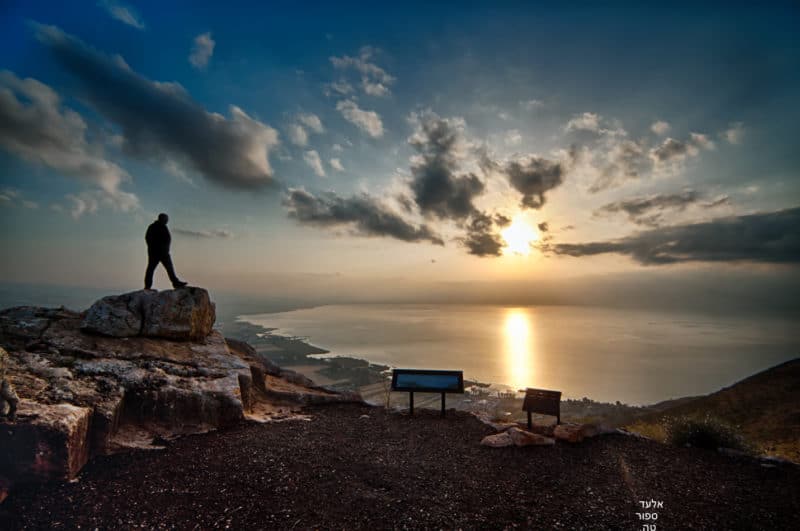As I discussed two weeks ago here on Tefillah Tuesdays, the blessing following Shema is devoted to the theme of the redemption – paradigmatically, the liberation of Israelite slaves from Egypt.
The blessing concludes with two key lines from the song upon crossing the Red Sea: מי כמוך/mi kamokha, “who is like You,” and ה’ ימלוך/yimlokh Adonay, “may the Lord rule eternally,” concluding with the blessing formula ברוך אתה … גאל ישראל/Barukh Atah. … ga’al Israel, “Blessed are You … who redeemed Israel.” For shorthand, the blessing is known simply as ge’ulah, “redemption.”
What do you do next? Davening Jews are supposed to continue immediately into the Amidah, without interruption, or in rabbinic parlance “to join ge’ulah to tefillah.”
This demand for perfect continuity is why you sometimes see prayer leaders fall silent when reciting the conclusion of the blessing ga’al Israel, to prevent anyone in the community from reciting amen to that blessing, which is said to constitute an improper interruption. But I think this is mistaken. As a technical Halakhic matter, most medieval authorities, especially in Ashkenaz, did not consider amen to be an interruption [Tur OH 111, et al]. And anyway, the very point of having a prayer leader is that someone should recite all the words to help others join in communal tefillah. So when you’re leading, please say the full blessing and when you hear it, you should say amen.
Spiritually, there is an even more powerful reason to join ge’ulah to the Amidah. The minimum condition for a forward-looking prayer is a core belief that the world can improve. Certainly, this world remains unredeemed, with all too much enslavement and exploitation. Where do we find sanctity amid its darkness? Jews counter darkness with light, in both mythic terms and practical deeds. By invoking the culturally remembered experience of deliverance from Egypt, we affirm that, yes, at some mythic moments, the dark world is bathed in God’s redemptive light. And with that liberation narrative shaping Jewish souls, we are inspired to become God’s partners in redemption, illuminating the gloom of human suffering with deeds of love.
Prayer is a dream about what the world can be and what we ourselves can be. Jews can daven only if equipped with faith that the light is possible. That growth is possible. That redemption is possible. If we didn’t believe that, then a prayer for a better world would be absurd. R. Abraham Joshua Heschel expressed this powerfully: “If God is dead, then worship is madness” [God in search of Man, p. 127].
But God is alive. And we are alive. So worship is sane. Since redemption has happened in the past, it can happen again, maybe even just around the corner, especially with us as God’s eager partners. Joining the blessing of redemption to tefillah becomes the context that makes sense of the Amidah, a prayerful turn toward a wiser, healthier, peaceful world. To fail to link the two is, in the words of the Jerusalem Talmud [Berakhot 6a] like knocking on the king’s door and running away.
I will illustrate this teaching with an ancient rabbinic story. First, a bit of background: the Talmud [Bavli Berakot 9b, Yerushalmi 6a] records a tradition that a group of pious virtuosos [“vatikin,” meaning “elders” or perhaps “wise ones”] would recite the morning prayers in the gathering dawn, carefully timing it so that they would finish the blessing of ge’ulah the very moment the sun topped the horizon, and they would begin the Amidah as the world filled with light. How inspiring it must have been to daven each day with a dramatic sunrise! (Almost makes it worth rising before dawn.)
This is the context for a story from the Jerusalem Talmud [Berakhot 4a], about two sages walking in the Galilee, beneath the Arbel, the steep cliff outside Tiberius:
- Hiyya the Great and R. Shimon ben Halafta were walking together in the Valley of the Arbel at dawn and saw the dawn light break. Said R. Hiyya the Great to R. Shimon ben Halafta: Sir, this is how ge’ulah, redemption, will come to Israel – first little by little, then all at once. What is the source? When I sit in darkness, God is my light [Micah 7.8].
I hope you find the light when you daven, linking the blessing of redemption to your prayer.





